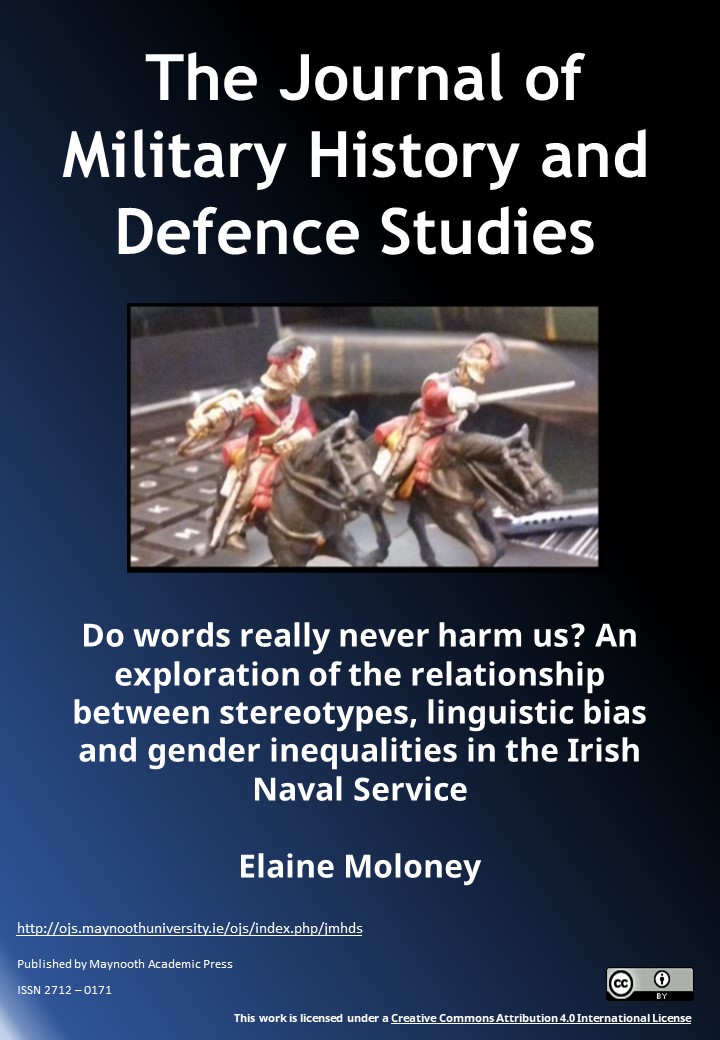Do Words Really Never Harm Us? An Exploration of the Relationship between Stereotypes, Linguistic Bias and Gender Inequalities in the Irish Naval Service
Abstract
The Irish Defence Forces is committed to increasing female participation to 12 per cent by 2023. However, numbers have never surpassed 8 per cent. This
article aims to shine a light on a possible explanation or contributing factor of this by exploring the relationship between stereotypes, linguistic bias, and
gender inequalities in the Irish Naval Service (NS). Building on Beukeboom and Burgers’ Social Categories and Stereotypes Communications (SCSC)
framework, this study asks if gender stereotypes and gender biased language exist in the NS and, if so, how prevalent are they and what are their
consequences on gender inequality in the organisation. This study highlights a reliance on gender roles within the NS which ascribe men a higher status than women and which view women as mothers. Consequently, women appear to be unfairly disadvantaged when it comes to career progression and advancement. The study also suggests that men are inclined to portray themselves in a more favourable light while also highlighting the negative behaviours of women. These findings support the notion that gender stereotypes and gender biased language are active in the NS and suggest a relationship between their use and gender inequalities in the NS. On this basis, it is recommended that NS adopts an integrated and continuous training programme that raises greater awareness of stereotypes, linguistic biases, and the negative consequences of their use. Further research is needed to identify further areas that stereotypes, and linguistic biases could be contributing to gender inequalities in the NS.

Copyright (c) 2021 Journal Of Military History and Defence Studies

This work is licensed under a Creative Commons Attribution 4.0 International License.

 This work is licensed under a
This work is licensed under a 
